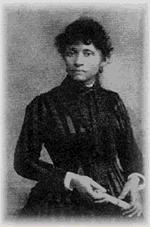

|
Everett Massacre The Industrial Workers of the World spent considerable energy on free-speech fights in the early 1910s. After 1915, official organizational policy shifted from "the soapbox to the job," but one of the most important free-speech struggles did not erupt until the spring of 1916. The site was Everett, Washington, a city of some 35,000 inhabitants on Puget Sound. Its port was a strategic center for shipping out lumber, and its hiring halls recruited workers for operations in the interior. On May I some 400 shingle cutters went on strike. When Sheriff McRae began to arrest pickets, the local sent out a national call for assistance. Although the local belonged to the AFL, which did not respond to its appeal, the IWW in Seattle sent James Rowan to organize a solidarity campaign. As soon as Rowan stood up to speak in public, he was arrested and a free-speech fight was on. Local support was considerable, but several efforts to speak in public met with failure. In an effort to build up the free-speech forces, a contingent of 41 IWWs arrived by ferryboat on October 30. They had not even left the dock area when they were surrounded by a sheriff's posse. Shortly thereafter, they were taken to a park on the edge of town and severely beaten. A week later another 250 Wobblies arrived by ferry to challenge the sheriff's lawlessness with a public meeting. As the boat attempted to dock, a drunken sheriff and deputies began to shoot at the passengers. Some of the IWWs shot back, and before the ferry could pull away, there were at least 5 dead, 6 missing, and 27 wounded passengers. On shore, a deputy lay mortally wounded, a lumber company official was already dead and 24 other individuals were wounded. The Everett free-speech fight had become the Everett Massacre. The immediate aftermath was that seventy-four IWWs rather than the individuals who had shot at them were put on trial for murder. This was the typical IWW experience in which the victim of violence was treated as the instigator. The attempt at repression soon backfired when the IWWs achieved acquittals or dismissal of charges in well-publicized legal proceedings. The IWW victory fueled the determination of timber workers to seek long sought basic reforms under IWW leadership. In the succeeding years, numerous gains were won through strikes and other direct action. As one IWW put it, the "timberbeast" became "a lumber worker." REFERENCES Bird, Stewart, Dan Georgakas, and Deborah Shaffer. Solidarity Forever-An Oral History of the IWW. Chicago: Lake View Press, 1985. Foner, Philip S., ed. Fellow Workers and Friends lWW Free-Speech Fights as Told by Participants. Westport: Greenwood Press, 1981. Kornbluh, Joyce R. Rebel Voices-An IWW Anthology. Rev. ed. Chicago: Charles H. Kerr, 1988. Source: |